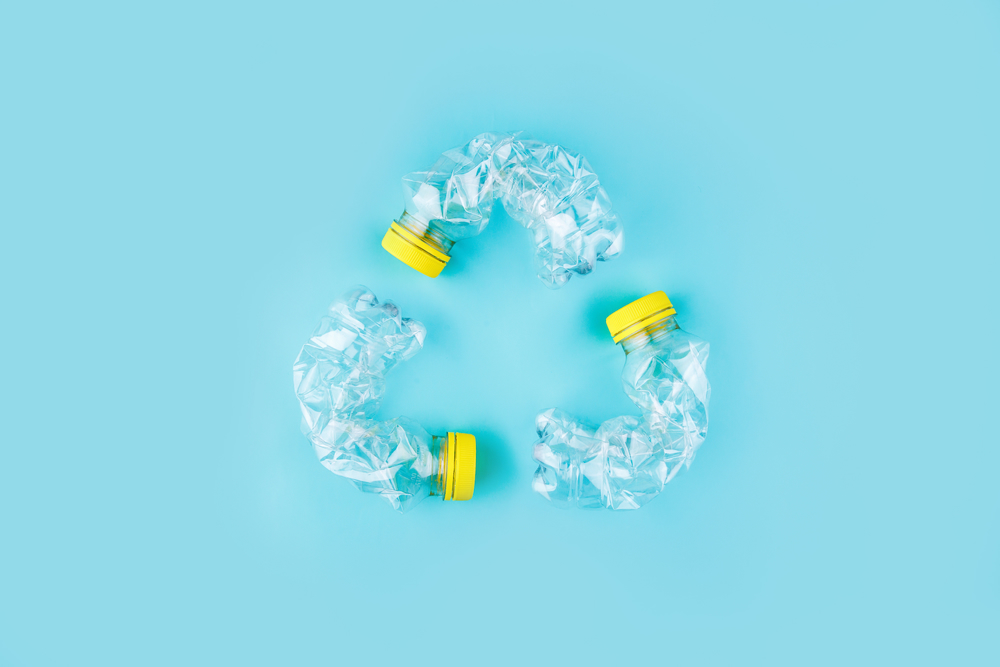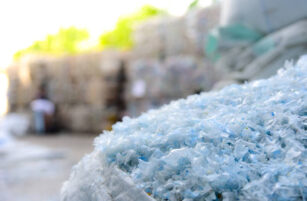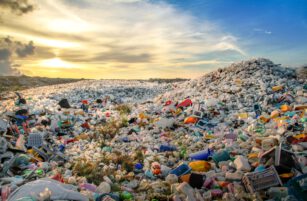Insight Focus
- Household waste survey finds just 12% of plastic packaging recycled in UK.
- Investment in two new major UK recycling projects announced in Cheshire and Sunderland.
- Global textiles leaders rethink bottle use, aim for textile circularity.
This Month’s Top Trends
1. UK-Wide DRS Strategy Critical to Cutting Plastic Waste
A recent survey of household waste has revealed over 100 billion pieces of plastic packaging are sent to landfill or incineration each year in the UK.
Around 100,000 households took part in the survey, which found that just 12% of plastic packaging is recycled at domestic reprocessing facilities. An additional 17% is shipped overseas for recycling and incineration.
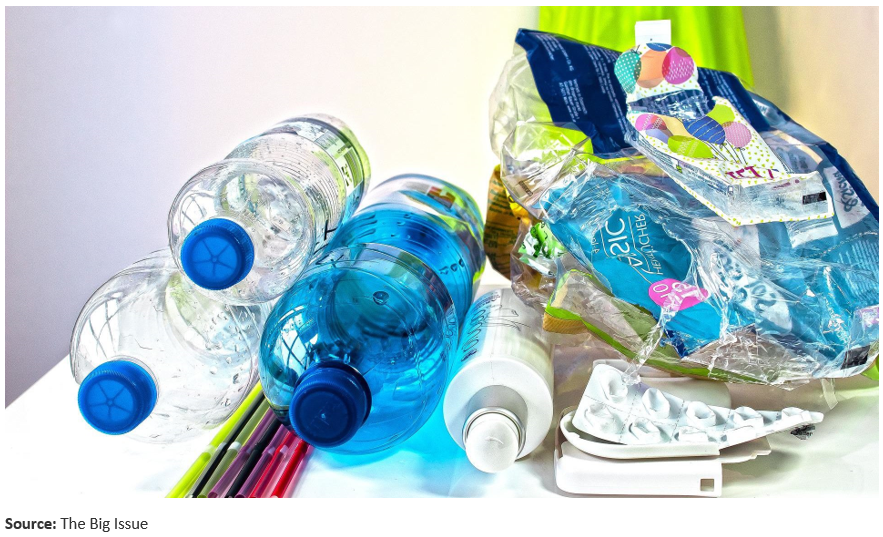
The survey has already provoked backlash from local authorities across the UK, including the North London Waste Authority, which is pressing for urgent bans on less recyclable plastic packaging.
At the same time, major food and beverage brands across Europe have had to rebalance or even roll back the use of rPET in plastic bottles due to high prices and supply issues.
One potential solution to both these challenges is through the expansion of proposed deposit return schemes. Scotland is targeting the launch of its DRS in August 2023, whilst others in England, Wales, and Northern Ireland are expected to be rolled out in 2024/25.
Whilst the initial scheme for England, Wales, and Northern Ireland had focused on PET bottles and aluminium cans, lawmakers are urging the government to include as many materials as possible, including cartons. Items included in schemes in Australia and Canada, as well as trials in Serbia and Sweden.
The impact of the introduction of DRS on consumers and retailers has been shown to be significant.
New research by Suntory Beverage & Food, the maker of Lucozade and Ribena, suggests it takes just seven weeks for the vast majority (88%) of shoppers to rethink their relationship with plastic bottles and to begin changing behaviour patterns and cutting waste following the introduction of deposit return schemes.
2. UK Sees Much Needed Recycling Expansion
Collection is only one part of solution for tackling plastic waste, of equal importance is having adequate domestic recycling capacity.
Investment in UK recycling is steadily increasing, supported by high prices for recycled material, and a regulatory environment that incentivises use greater amounts of recycled plastics in the manufacture of packaging (see Europe’s First Plastic Packaging Tax).
Plans for the UK’s first “Plastic Park” near Ellesmere Port, Cheshire have been given the green light by local councillors. The £165m development will feature innovative processing and treatment technologies capable of processing up to 367,500 tonnes of mixed recyclables and plastic every year.
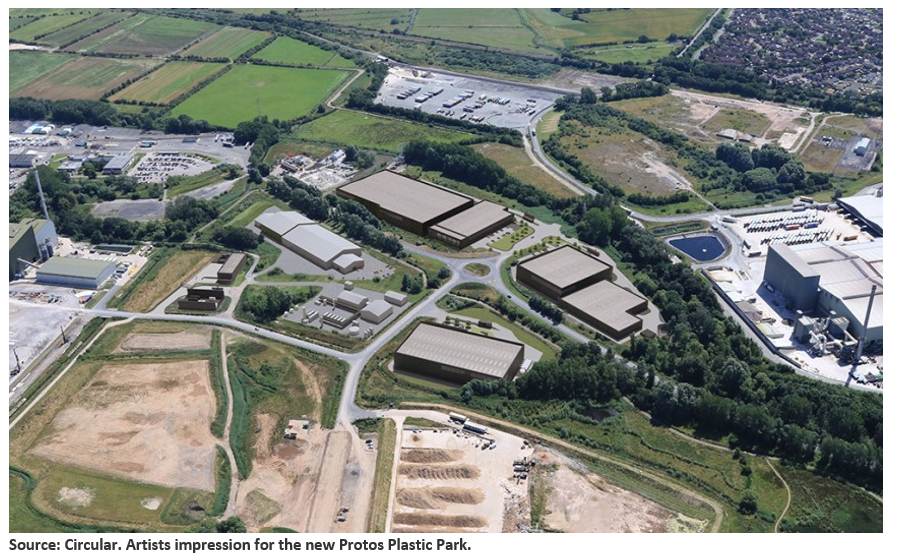
The approved application includes:
- A materials recycling facility for separation of different waste streams.
- Washing and flaking units to process the sorted plastics, including the production of rPET flake.
- A polymer laminate recycling facility for the recycling and recovery of materials from multi-layer flexible packaging, including crisp packets and food pouches.
- A hydrogen refuelling station, using hydrogen production via some of these technologies to fuel around 20 HGVs.
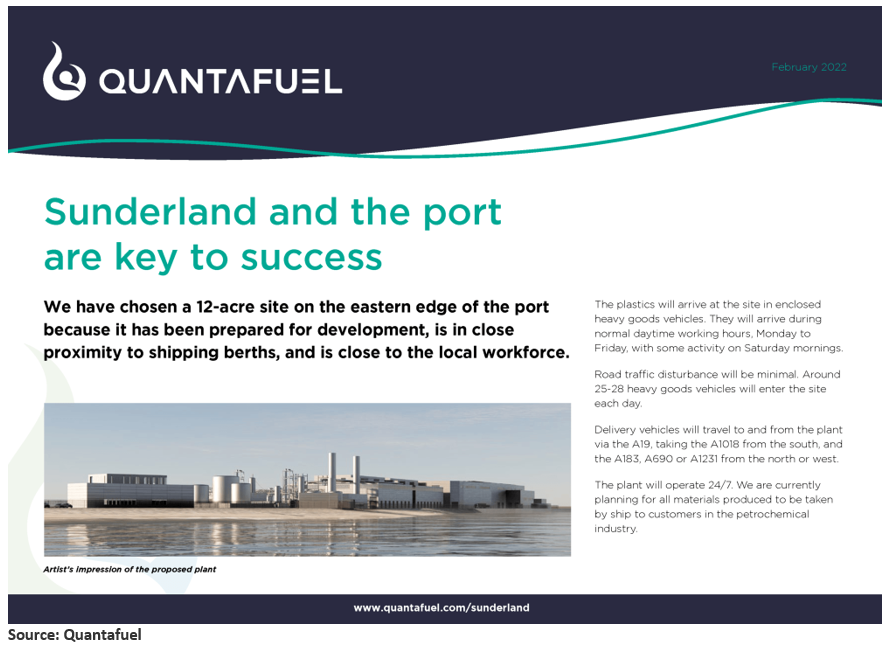
In another first for the UK, a planning application has been submitted for a chemical recycling plant in Sunderland, Northeast England.
Quantafuel, headquartered in Oslo, Norway, has confirmed its plans to expand into the UK with processing plants that create high-value products from low-value plastic waste.
The proposed plant will be based on a pyrolysis technology capable of converting difficult-to-recycle plastics into oil and chemical products.
Subject to planning approval, the plant could be up and running by 2025.
3. Textiles Rethink Bottle Use, Promote New Circularity
In recent years, the textiles and clothing industry has clambered for sustainability, announcing the use of post-consumer waste in a whole host items, from fast fashion to tyre cord.
To feed this addiction, global textiles have been consuming an increasing amount of post-consumer PET bottles, hindering circularity within the food and beverage industry (see Battle for the Bottle Pool).
In May, several European drinks associations called on the EU to implement a policy framework that would give beverage producers priority access to food-grade recycled materials.
This month there have been several announcements from major clothing brands and textiles companies in response to these market dynamics, as well as about textile recycling technologies.
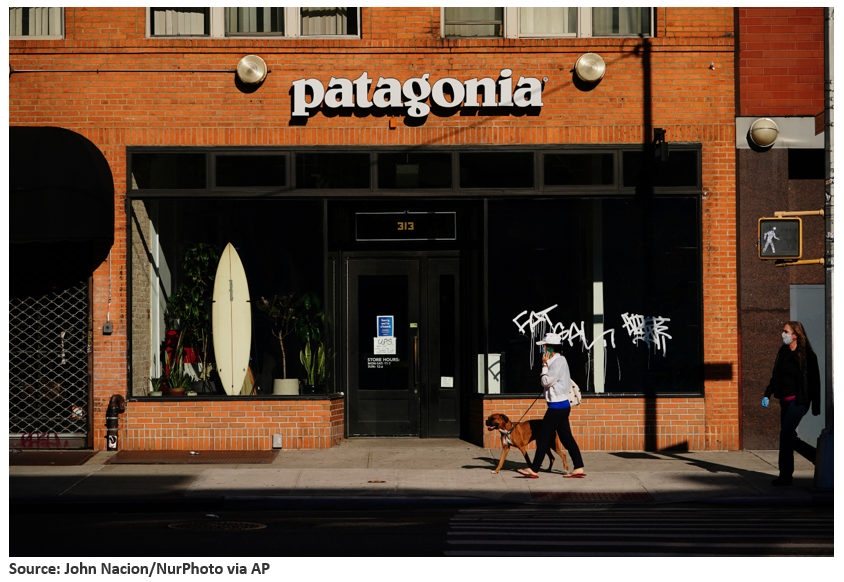
Carbios, a developer of enzymatic solutions dedicated to the end-of-life of plastic and textile polymers, signed an agreement with fashion brands, On, Patagonia, Puma and Salomon to research how worn polyester products can be recycled, rather than using post-consumer plastic bottles for new materials.
Earlier this year, Continental announced the “world’s first” tyres made with polyester from recycled PET bottles.
Looking beyond the bottle, 17 European organisations have now formed a new plastic recycling consortium. The WhiteCycle project, led by French tyre manufacturing company Michelin, which aims to recycle composite post-industrial materials containing polyester textiles and other components from old tyres, hoses, and multilayer clothes.
The materials covered will be used to produce new high value products used within similar end-use applications, creating circularity within the industry.
4. US Consumer Brands Struggle to Meet Sustainability Goals
Faced with stagnant recycling rates and shortages of recycled material, US consumer brands are struggling to meet sustainability goals, and, for many, time is running out as 2025 targets draw ever closer.
Recycled content mandates at state level are also gaining in popularity. Starting this year, California law requires all plastic bottles covered by the container redemption program to contain an average of at least 15% post-consumer resin (PCR). That mandate increases to 25% in 2025 and 50% in 2030.
This month there have been several new investment announcements aimed at tackling the much-needed capacity expansion in the US.
HPC Industries and Macquarie have formed a joint venture to build five recycling facilities in the US. The new plants will be capable of producing a total of almost 125k tonnes of rPET resin.
The network of proposed recycling facilities will be operated by Circularix, a company founded by two industry veterans, former Carbonlite CEO, Leon Farahnik, and Alex Delnik, founder of Verdeco Recycling.
The first facility will be in Hatfield, Pennsylvania, and is scheduled to be operational by December this year.

PTT Global Chemical America, a business unit of Thailand’s largest integrated petrochemical and refining business, signed a non-binding memorandum of understanding with the Solid Waste Authority of Central Ohio (SWACO) and plans to build a new plastics recycling facility in the region.
The proposed recycling complex in Grove City, Ohio, will manufacture recycled polyethylene as well as rPET. The final investment decision will be made by the end of 2022.
Other Insights That May Interest You…
Plastics and Sustainability Trends in June 2022
Plastics and Sustainability Trends in May 2022
Plastics and Sustainability Trends in April 2022
Explainers That May Interest You…
